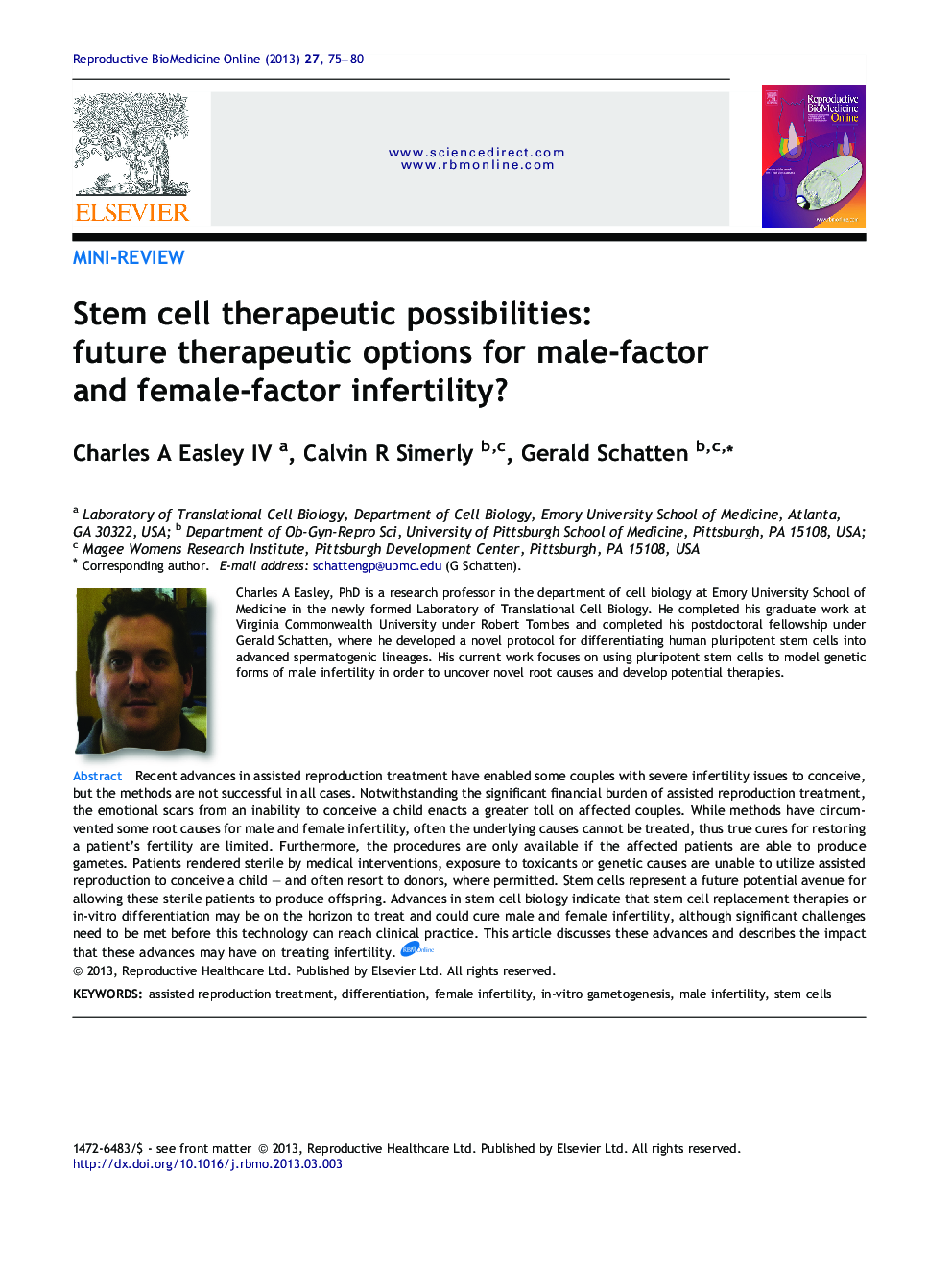| Article ID | Journal | Published Year | Pages | File Type |
|---|---|---|---|---|
| 3970269 | Reproductive BioMedicine Online | 2013 | 6 Pages |
Recent advances in assisted reproduction treatment have enabled some couples with severe infertility issues to conceive, but the methods are not successful in all cases. Notwithstanding the significant financial burden of assisted reproduction treatment, the emotional scars from an inability to conceive a child enacts a greater toll on affected couples. While methods have circumvented some root causes for male and female infertility, often the underlying causes cannot be treated, thus true cures for restoring a patient’s fertility are limited. Furthermore, the procedures are only available if the affected patients are able to produce gametes. Patients rendered sterile by medical interventions, exposure to toxicants or genetic causes are unable to utilize assisted reproduction to conceive a child – and often resort to donors, where permitted. Stem cells represent a future potential avenue for allowing these sterile patients to produce offspring. Advances in stem cell biology indicate that stem cell replacement therapies or in-vitro differentiation may be on the horizon to treat and could cure male and female infertility, although significant challenges need to be met before this technology can reach clinical practice. This article discusses these advances and describes the impact that these advances may have on treating infertility.Infertility is a condition that affects an estimated 15% of couples worldwide. Recent advances in assisted reproduction treatment have enabled some couples with severe infertility issues to conceive, but the methods are not successful for all cases. Notwithstanding the significant financial burden of assisted reproduction treatment, the emotional scars from an inability to conceive a child enacts a greater toll on affected couples. Stem cells represent a future potential avenue for allowing sterile patients to produce offspring. Advances in stem cell biology indicate that stem cell replacement therapies may be on the horizon to treat and possibly cure male and female infertility, although significant challenges need to be met before this technology can reach clinical practice. Here, we discuss these recent advances and describe the impact that these advances may have on treating infertility.
